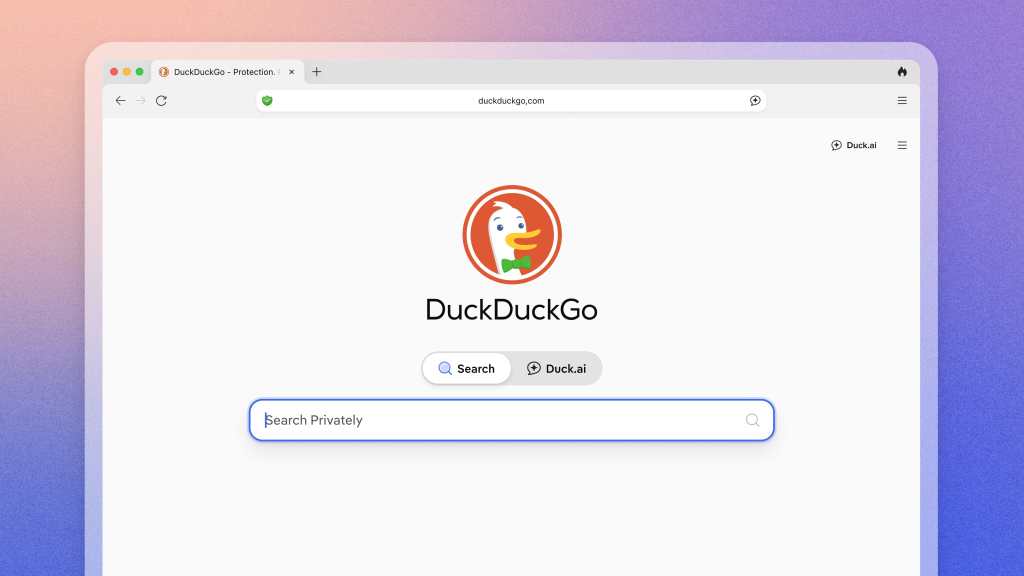Last November, San Francisco voted to impose a new tax on companies raking in more than $50 million in gross annual receipts to help the city’s growing homeless population. But some of the loudest people to speak up against the ballot initiative, dubbed Proposition C, were a few (albeit not all) of the Bay Area’s tech moguls: Twitter and Square CEO Jack Dorsey, joined by businesses like Stripe and Lyft, donated serious cash in a vain attempt to kill the plan.
Which is not to say Big Tech has shown no interest in housing policy in America. On the contrary, the industry has slowly been making its own inroads into the strained West Coast market in particular: In the past few years, several of the biggest tech companies have announced major projects—sometimes new development, like Google’s planned 6,600 housing units in Mountain View, and in other cases philanthropic investment in affordable housing, as Microsoft did to the tune of $500 million (and great fanfare) in the Seattle area last week. On Thursday, Facebook CEO Mark Zuckerberg’s philanthropic initiative made its own move, announcing a public-private $500 million housing fund—developed in collaboration with local nonprofits and real estate developers—to build 8,000 new homes across five Bay Area counties in the next decade.
Videos by VICE
The dichotomy at play here is no accident. One the one hand, tech companies have helped fuel the housing crisis—sprawling across cities that are bursting at the seams with little investment in public infrastructure, and avoiding taxes that might help the poor and homeless at virtually every turn. On the other, they’re positioning themselves as postmodern Robin Hoods, announcing plans to build apartments for rent and subsidize others in a fashion that harkens back to the days of 19th century “company towns,” threatening to even more dramatically shape communities in the shadows of their own corporate megaliths.
This puts tech more squarely than ever in the business of influencing where and how people live. Among other things, it allows companies to incentivize employees to reside closer to their places of work—in a statement, Google real estate VP Mark Golan said they wanted to make Mountain View a place to “live, work, play and stay,” while Facebook has historically offered $10,000 bonuses to employees living close to campus. Meanwhile, when states like California are an estimated three million homes short of something resembling affordability, there is little resistance to big tech’s unchecked power creeping into public policy and government.
“These companies are so dominant,” argued Joel Kotkin, a fellow in Urban Futures at Chapman University in California, and author of The Human City: Urbanism for the Rest of Us. “There’s only a few people who have money, and even in doing things that are necessary, it’s going to be the affordable housing they want.”
Tech companies are by no means the sole reason for the affordable housing crisis, of course, whether in Silicon Valley or elsewhere. Thanks in part to stringent regulations that restrict where developers can build, states like California are falling short of demand by 100,000 new homes per year. But Big Tech’s hulking presence has been accompanied by tangible stress for communities. In Cupertino, the suburb outside of San Francisco where Apple is based, one analysis by real-estate marketplace Zillow in 2015 found home prices had risen faster in communities dominated by their workers than others since 2007, when the iPhone was released. In Seattle, where Amazon has taken over large swaths of the city, housing prices rose almost 73 percent (and rents about 31 percent) in the past five years, also according to Zillow.
Georgette Bhathena, a director at the philanthropic San Francisco Foundation, which is working with Zuckerberg’s group on its initiative, said the housing project has been years in the making, and, when pressed, nodded to the role Silicon Valley played in creating the problem in the first place. “The growth of tech companies has put some pressure on a broken system, but we see that tech companies are starting to really build housing and support efforts to make housing more affordable,” she told me. (When reached for comment on the motives underlying their plans, a spokesperson for Facebook and the Chan Zuckerberg Initiative pointed to data outlining how their funds were intended to “Produce, Protect, and Preserve” affordable housing. A spokesperson for Microsoft referred us to a blog post by company executives Brad Smith and Amy Hood emphasizing the company’s obligation to help people in every profession afford a place to live, and indicated their initiative would not prioritize their own workers.)
But the desire to make housing more accessible does also apply to their own employees, at least in the case of Facebook, Bhathena said. While some of the efforts have been focused specifically on subsidized housing, tech workers face the strain too—employees at companies like Facebook and Apple have publicly talked about not being able to afford living near their jobs. This is why, Bhathena continued, the Zuckerberg-affiliated Bay Area housing collaboration is focused on middle-income housing as well, and not only building houses but rehabilitating and protecting existing tenants and neighborhoods. Similarly, the Microsoft affordable housing initiative is said to be meant for families with a collective income between $62,000 and $124,000. (What it says that this salary range is now what passes for “middle-income” in some tech-heavy areas is another story.)
Google has taken a different approach: Its plan to create thousands of housing units in Mountain View, the suburb of San Francisco that houses its headquarters, is slated to include 20 percent “affordable” housing. But a spokesperson told VICE it has little to do with their own employees, who, they said, would have to apply for housing in the area the same way as everybody else, and suggested the broader inspiration for their initiative was simply to serve as better neighbors in their community and partner more closely with local government.
While most of the projects have yet to be developed, a key indicator of their impact will be what kinds of units actually gets built, and whether they are rented or sold. Rented one-bedroom and studio apartments, which now pervade urban centers around these big companies, are usually meant for a young and childless population, Kotkin said. That might be by design—Mark Zuckerberg himself once said the words, “Young people are just smarter,” and one estimate suggested the average age of a Facebook employee in 2017 was 28.
“How much cash is Apple sitting on? How much cash is Google sitting on? To me, not to do something is immoral.”—Malo Hutson
This can also mean controlling the culture of a city. If the housing initiatives across the companies do focus on studios and one-bedroom apartments, as Kotkin suggested, mixed-use buildings, family community centers and public schools could all be pushed out—along with with the families they serve. “The old Silicon Valley—HP, Intel—these people had long-term companies. People worked for HP for 30 years, you bought a house, you raised a family,” Kotkin said.
Malo Hutson, director of Columbia University’s Urban Community and Health Equity Lab, said his own decision to move from the Bay Area to New York was based in part on a desire for more diversity. He noted he would go to birthday parties for his children only to meet the same crowd working at Google and Facebook. “We want cities for all types of people—without that, you’re getting this global monolithic culture for the elite,” he told me. Across the Bay Area, that impact is becoming clear: Black and Latino populations, especially, have been driven out by the high rent prices in tech-heavy neighborhoods.
Historically, communities created for homogenous populations have been pernicious. Frank Lloyd Wright’s Broadacre City project, for example, attempted to create satellite hub—i.e. suburbs—outside of major urban areas. But what he thought would allow for comfortable living instead left a blueprint for what we now identify as social isolation and economic distress.
But Hutson argued tech companies have a responsibility to grow and encourage more housing in the areas where they operate—especially when it comes to housing for what now passes for the middle class. He suggested any housing the companies provide will take stress off the larger crisis. “How much cash is Apple sitting on? How much cash is Google sitting on? To me, not to do something is immoral,” he said.
It’s important to note that many of these forays into the housing market are not just the private sector parachuting into communities, either. The Facebook initiative, for example, is a public-private partnership that provides the capital but leaves the building and development to local organizations like the San Francisco Foundation and, less comfortingly, real estate developers. Likewise, both Microsoft and Google are working with local governments (as well as private entities) to spend their own housing dollars.
But even a responsible benefactor can prove dangerous. Back in the 19th century, industrial outfits would crop up in remote areas and run the entire local economy—providing housing, education and jobs along the way. Compare that to Amazon’s recent quest to make a new home in Long Island City, New York. In attempts to appease local residents, the company offered to build a public school and and provide thousands of “indirect jobs” just by its presence in the local economy.
If history holds any lessons, it’s that when the companies inevitably faltered or failed, they left their communities barren as well, and people had to migrate or suffer as a consequence. While Hutson said that drastic impact was unlikely in areas like New York or the Bay Area, there’s still the possibility that housing tied to a company’s finances will be inherently unstable.
Meanwhile, the public sector suffers when we leave housing to the whims of private charity. As we’ve seen with transportation in the Bay Area, the ridership and revenue on the local buses and train system, BART, has fallen significantly in the past few years, even as sleek, private shuttles transport thousands of workers every day. While it’s hard to decipher cause and effect, it’s clear that when companies work mostly through private-sector solutions, the broader public infrastructure of a city can be neglected. And if the way most of the tech sector reacted to Proposition C, or the “Amazon Tax” in Seattle—which the mega-retailer actually forced lawmakers to repeal—is any indicator, companies are still focused on profit above all else.
In his book Winner Takes All: The Elite Charade of Changing the World, Anand Ghiridiras—who served as a sort of intellectual foil at this week’s annual meeting of the World Economic Forum in Davos—talks about this exact dilemma. While seemingly altruistic projects and plutocratic philanthropy seem admirable, they often serve only to soften the edge of the problem at hand. As he writes, people in the top echelons of society want to create “virtuous side projects instead of doing their day jobs more honorably.” That allows the deep grooves of inequality to persist.
Or as Kotkin put it, “This is their attempt to create the feudal caste society [in] which they are on top and everybody else is a schmuck.”
Sign up for our newsletter to get the best of VICE delivered to your inbox daily.
Follow Ankita Rao on Twitter.
More
From VICE
-

Photo: dbvirago / Getty Images -

Credit: DuckDuckGo -

Photo: Oleg Breslavtsev / Getty Images -

Photo: HEX / Getty Images
